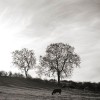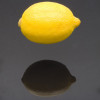Questions about images, copyright and fair use
Hello. I've read the learning center guide on proper image use. I understood the topic well enough but what has me confused is the subject of fair use.
From what I understand from reading the guide on image use, fair use lets one use copyrighted images for review-based hubs. Is this correct or am I understanding things wrongly? Also, how would one cite copyrighted images? Do we refer to the website where we got them or to, say, the author of the book which the image is about? I've been looking at some review-based hubs but the ones I've seen do not have the sources of the images cited so I'm not sure about what to do exactly.
Also, I've seen those same review-based hubs also have Amazon capsules, selling products of what they're reviewing. Can we do this? I ask because the info on fair use said something about monetizing. But then it also said that we shouldn't use copyright material if the copyright owner won't be able to earn from it. If we're writing reviews promoting the products of the copyright owner like, say, books or movies, does this mean we can use copyrighted images such as having bigger pictures of a book cover or some scenes from a movie or pictures of characters?
Thanks for taking the time to answer my questions and clarifications. I'm still pretty new here so things like this are still confusing me.The best thing to do is to do a search on Google images/advanced search/free to use or share and make sure to cite the web site plus the photographer's name. In the past I have failed to mention the photographer's name and I am diligently trying to correct this so I hope that you learn from my mistakes.
Thanks. I know about this and I do use the Google images Advanced search. I was just wondering about writing hubs that review products, books, movies and the like. There aren't really any Creative Commons licenses or public domain images for these things. And I wanted to know what to do if I want to write hubs about these things.
If you can find the item on Amazon and you've added an Amazon capsule for that product, then Amazon allows you to use their image. If you want to confirm that, head over to the Amazon Associates forum.
If you can't find the item on Amazon then things become a lot fuzzier. Strictly speaking, you'd be much safer not to use the image - but in practice, if you're reviewing the product in a positive light, it's highly unlikely the maker will object. However if you say anything negative about the product at all, you could be sued or at least get a very nasty letter.Thanks. So, just to clarify, as long as you can find the item on Amazon, then you can use the image and write reviews about it? But can you also use an image that isn't from Amazon but is still about the Amazon product that you're reviewing? And if you're trying to review products in a positive way, then you can use the product maker's copyright images, just to better show the product?
"So, just to clarify, as long as you can find the item on Amazon, then you can use the image and write reviews about it?"
Yes IF you also include an Amazon capsule featuring the product.
"But can you also use an image that isn't from Amazon but is still about the Amazon product that you're reviewing?"
Although it's not strictly legal, it's extremely unlikely you'll have any trouble IF you are saying only positive things about the product. At the very worst, you would get a letter asking you to remove the image, not a law suit!
As others have said, Google image search is not reliable. You must always go to the original site and check what it says - don't trust Google when it says something is available for use.Thanks for your reply. I understand things much better now. I think I'll be able to try writing reviews and sales hubs soon.
Oh, and about Google image search, what I do is use the Google Advanced image search, choosing to see only the images that are Creative Commons or public domain. Then when I see an image I'd like to use, I click on it and choose to go to the site where the image is. That's where I look at what copyright the image has. That is correct, isn't it? Because the page does specify the copyright like if the image that I found on Google search is on flickr.It's the first step. Not all the images that Google thinks are copyright free, are actually.
Unfortunately, many of the images that Google finds, even with the advanced search CC or PD settings, are from people who don't own the image and have simply posted it somewhere, ignoring the image's original copyright.
You definitely need to check the site/page where it comes from to find the actual license, as you are doing now (thank you!)
Sometimes it will be clearly marked (as in Flickr), other times in the footer, in an 'about' page or somewhere else on the photographer's or artist's site.
It's always better to skip those images/photos where you aren't sure who holds the copyright, or when you can't find license information.
On Flickr, in the right hand column, you'll usually see Additional Info, above the license information. It contains the photos EXIF information - camera settings, lens used, etc. If this information is available, then generally, that photo was taken by that user, and the license terms are to be trusted. However, not all photographers release this info, and some photos are reposted with EXIF information included. I do generally trust the licenses attached to photos in Flickr when they have EXIF info.
Stock photo sites aren't usually free (although they may have free collections). You usually have to pay for a subscription.
And yup, it means that photos from news sites, and places like National Geographic, etc. can't be used. Unless you directly get permission to use the photos on a commercial site, from the paper or the photographer.Thanks. I'm glad to know that I'm doing things right. So far, I think Google's doing a pretty good job showing me only the CC or PD type of images. Or maybe that's just because the images I've been wanting to use seem to be coming from flickr most of the time.
Most of the images found using the Google advanced image search, even when you select free to use commercially, are copyrighted.
You need to do a lot more digging on the image sources to find out if you can use it:
- look if the image turns up on multiple pages (probable breaches of copyright) -- don't use the image.
- go to the source page for the image, and look if the site is covered by a copyright notice -- don't use the image.
- if the artist is credited - find their website and copyright, and contact them for permission.
The reverse image search TinEye.com is sometimes useful for finding original sources.
Personally, I would avoid Google image search completely, even with the advanced settings.
Instead go to sites which host the actual photos, like Flickr, which have license terms attached to each photo, where you can search on license type. Of course, this isn't foolproof - many users post images they have found around the net. Keep an eye on the camera/photo settings, etc.
Or subscribe to a stock photo site.
Note that photos used on newspaper and TV news sites are also covered -- usually they have been purchased via a subscription to Reuters or AFP photo journalism services.
Re review writing, don't use still shots from movies - these are copyrighted.
Fair use becomes even more murky when commercial use (such as HubPages) is added. I agree with Simone - I'd avoid it completely.Thanks for all this information. It's very useful to me because I'm still pretty new to all of this.
About using Google Image search, what I do is actually go to the site where the photo is located, like, say, flickr, and then I look at the page to see what the copyright is and if it's Creative Commons or public domain then I use it. I also refer to the learning center guide on image use because it has a lot of suggested sites where we can find images we can use like flickr or Wikimedia Commons.
I didn't know about TinEye.com. I'll have to check this site out.
By the way, what do you mean about "keep an eye on the camera/photo settings"? And, how will I know if, say, an image I found on flickr that says it's Creative Commons isn't actually true? Actually, I didn't even think it might not be true.
About stock photo sites, I was under the impression that they weren't actually free.
Oh, so does that mean that those photos from newspaper and TV news sites can't be used?
Yeah, I'd generally want to avoid using copyrighted images. I was just wondering about writing sales and reviews hubs because I've read hubs about these and I'd like to try my hand at them too.
The best advice I have heard (and can pass on) re: Fair Use is to avoid it entirely It is basically just an invitation to be challenged by the copyright holder, and any Hubber who hosts ads on his/her Hubs or earns affiliate revenue from sales is going to have a pretty weak argument.
What psycheskinner says is right at least on the Amazon front- so long as you feature the product in your Hub using the Amazon Capsule, you are within the bounds of their rules.You are correct, that is the best advise. However there are a lot of instances where an image/part of a work (nothing more than an excerpt) can be used such as to demonstrate a technique, emphasize a point, offer a review/critique, compare and contrast and this is within the realm of Fair Use, regardless of whether you have ads or not. What is clear is that you cannot use a substantial portion of a written work and claim Fair Use. When it comes to images the issue is a bit more cloudy.
"Fair use is a limitation and exception to the exclusive right granted by copyright law to the author of a creative work. In United States copyright law, fair use is a doctrine that permits limited use of copyrighted material without acquiring permission from the rights holders. Examples of fair use include commentary, search engines, criticism, news reporting, research, teaching, library archiving and scholarship. It provides for the legal, unlicensed citation or incorporation of copyrighted material in another author's work under a four-factor balancing test
"The fourth factor measures the effect that the allegedly infringing use has had on the copyright owner's ability to exploit his or her original work. The court not only investigates whether the defendant's specific use of the work has significantly harmed the copyright owner's market, but also whether such uses in general, if widespread, would harm the potential market of the original. The burden of proof here rests not on the defendant for commercial uses, but on the copyright owner for noncommercial uses."
"A US court case in 2003, Kelly v. Arriba Soft Corporation, provides and develops the relationship between thumbnails, inline linking and fair use. In the lower District Court case on a motion for summary judgment, Arriba Soft was found to have violated copyright without a fair use defense in the use of thumbnail pictures and inline linking from Kelly's website in Arriba's image search engine. That decision was appealed and contested by Internet rights activists such as the Electronic Frontier Foundation, who argued that it is clearly covered under fair use."
"On appeal, the 9th Circuit Court of Appeals found in favour of the defendant. In reaching its decision, the court utilized the above-mentioned four-factor analysis. Firstly, it found the purpose of creating the thumbnail images as previews to be sufficiently transformative, noting that they were not meant to be viewed at high resolution like the original artwork was. Secondly, the fact that the photographs had already been published diminished the significance of their nature as creative works. Thirdly, although normally making a "full" replication of a copyrighted work may appear to violate copyright, here it was found to be reasonable and necessary in light of the intended use. Lastly, the court found that the market for the original photographs would not be substantially diminished by the creation of the thumbnails. To the contrary, the thumbnail searches could increase exposure of the originals. In looking at all these factors as a whole."
Sources: Wikipedia,www.fairuse.stanford.edu,www.law.cornell.eduSo, does this mean that I can write review-based hubs on things like movies, books and the like and also be able to have Amazon capsules on them while also using some copyrighted images relating to the product I'm reviewing? Because it's like you're actually promoting the copyright owner's market by having the Amazon capsules and saying reviews about the products. Is this correct?
Thanks for your response. May I just ask for clarification with what you said? Are you saying that it's okay to publish review-based hubs on things like books, movies and other Amazon products and then use Amazon capsules? But it's also okay to use copyrighted images of these items to better depict the Amazon products? Is this correct? If so, how would you credit the image? For instance, if you're using a book cover of the book you're reviewing, what source do you cite for that image? Is it where you got the book cover image from or the book author?
I do agree with you about not using copyrighted images and I really value always citing the sources for images used as well as making sure I find the correct licenses that could be used.
However, I've been seeing sales hubs and review hubs and I thought I might want to try writing those kinds of things too but then I ran into the problem of not knowing what to do about images.
Generally if you are reviewing something it is safe to use pictures the company has produced of that item or that directly depict that item being used. That would include things like books covers, computer game screen shots, advertising images.
Thanks very much for this clarification. Is it also okay to add Amazon capsules about the product you're reviewing? And how would you cite the sources of these copyrighted images then?
An interesting question. Yes you would be "monetizing", but I don't think the copyright owner would object to your having a link that enables readers to buy the book or merchandise. Personally, I question the objectivity of a reviewer who directly profits from the sale of an item he is reviewing.
Oh, so do you think it is okay to publish review-based hubs that also have copyrighted images? Are you also saying that review-based hubs shouldn't have Amazon capsules on them? I've seen a lot of review-based hubs that have these though.
There is a company called Shuterstock that promotes copyrighted images through pixabay.com (public domain images). Sometimes the images they have may be more fun or appropriate than images on pixabay, but remember they cost money. You can purchase use rights - they will inform you of the disclosure requirements necessary when you complete your purchase or perhaps have a summary on the shutterstock site. So check out shutterstock - that may be more helpful to you if you are wanting to lease copyrighted images.
hope this helps a little.
PattiThanks for your suggestion but I'm not really looking to buy images. I just want to know if I can publish review-based hubs that have copyrighted images for fair use while also having Amazon capsules on them.
My take on this is that it is basically a gray area. If you read LuisEGonzalez's reply, he has given details of a court case (as well as lots of other useful info). First the court found in favor of the plaintiff. On appeal the court found in favor of the defendant. So even the courts aren't sure!
In that court case it seems that the images being used were only small thumbnails of the images, and this is one of the reasons why the appeal succeeded. Similarly, Wikipedia only allows small versions of copyrighted images to be used on their website under a 'Fair use' case.
So if you use small versions of copyrighted images and properly attribute them you will probably safe in terms of fair use.
The safest thing to do, if you're writing a review of something, is to just take photos of it yourself. Maybe try and be a bit creative, e.g. instead of just photographing the flat book cover, take a photo of the book on a coffee table, or a photo of someone reading the book.Excellent point. My answer just points out that sometimes, depending on the purpose for which you want to use the photos, Fair Use allows one to use them, even if copyright. To ad more clarity; if I post an article with nothing but images then Fair use will probably won't apply, but if the article talks about a technique,method etc and you use the photos to illustrate the technique, then Fair use will probably cover you. But as you point out, even courts seem to apply different rules and there is often a wide latitude from jurisdiction to jurisdiction.
Thanks for your suggestion. I'm not really good with taking pictures though. And sometimes, the issue can also be that you don't have the item in question that you're reviewing. Say, for instance, you've just read the book in a library or just borrowed it from someone.
Then the Amazon photos and capsules are your best bet.
Plus search for CC or PD photos that fit with the theme of the book/movie to make the hub more interesting, and are allowed to be used commercially.Thanks for your suggestion. I'll be doing this too when I get around to writing the sales and reviews hubs I've been wanting to write about.
Image copyright is a very tricky area and it is very easy to get yourself into hot water. Fair use generally (in the UK) applies to using images supplied by the owner of the product that the images are of. So if you are reviewing an Apple product and used images from the Apple website that belong to Apple then fair use would be a reasonable claim. This is because Apple own both the product and the copyright to the images you are using. So if your review causes lots of people to buy the Apple product that you reviewed then Apple would benefit hence you can claim its fair use.
However if you surf the web and find an image of an Apple product taken by someone who doesn't work for Apple then that wouldn't be fair use as you are using the photographers images to promote / review an Apple product. It doesn't matter how many sales you push Apple's way because of your review the photographer gets no benefit and so its not fair use of his images.
In general fair use of images in reviews only counts if the product owner is the copyright owner of the imageHi. Thanks for your response. What you said makes a lot of sense. And the copyright of images can be really confusing and complicated. I guess what you said can also apply to movies and books? Then it might be better to go to the official site of these products so you can be sure that the images they have belong to the copyright owner of the product?
Related Discussions
- 48
I have a question about using copyrighted images
by NotPC 9 years ago
HubPages is very firm in their rule to only use photos for which you have permission to use. Hypothetically, what happens if you break this rule? I've seen many people using images that are clearly not theirs to use and I was just wondering if this affects them in any way...
- 84
Amazon Associates Account being terminated for lack of sales.
by Mary McShane 8 years ago
I just got this email. Is terminating your account normal if you don't have any sales or referrals in 90 days????Hello,Thanks again for joining the Amazon Associates program. We’re reaching out to you because we have not seen sales activity on your account.At the time your application was...
- 22
Have a Not Featured – Quality hub and not sure why . . .
by Gemini Fox 9 years ago
Had never done a “sales” hub before so decided to try. Have tweaked and tweaked this hub but it still keeps on being not featured due to quality. Getting a little T’d . . . http://geminifox.hubpages.com/hub/Green … t-Friendly- Have every single one of the “goal” (attributes) boxes ticked off...
- 23
Multiple Products In a Capsule to Be Discontinued
by Christy Kirwan 6 years ago
Today I have a quick announcement. We are retiring Amazon Capsules with multiple products. Writers haven’t been able to create these in a very long time, but some very old articles still contain Amazon Capsules with multiple products in them. On January 8th, these will be converted to...
- 26
Confused. Can List Based Articles Have Multiple Amazon Capsules/Links?
by Rosheda Stephenson 6 years ago
I am yet to successfully publish any articles with amazon products. I am trying to be clear on the requirements for these articles. I thought articles should be limited to 1-2 products, however I have seen list based articles with multiple products (ideas for gifts) on niche site, Holidappy. Would...
- 27
IMPLEMENTED: Make the Amazon modules attractive? The click through is
by Brandon Lobo 11 years ago
Hi MickiIf you've noticed I've not written any hubs recently, I'm on my vacations from University and thought of doing a 30 hubs in 30 days challenge. Rather, I've gone for a 30 Wizzley articles in 30 days - for a good reason: Their amazon Capsules are way better formatted - users feel like...















